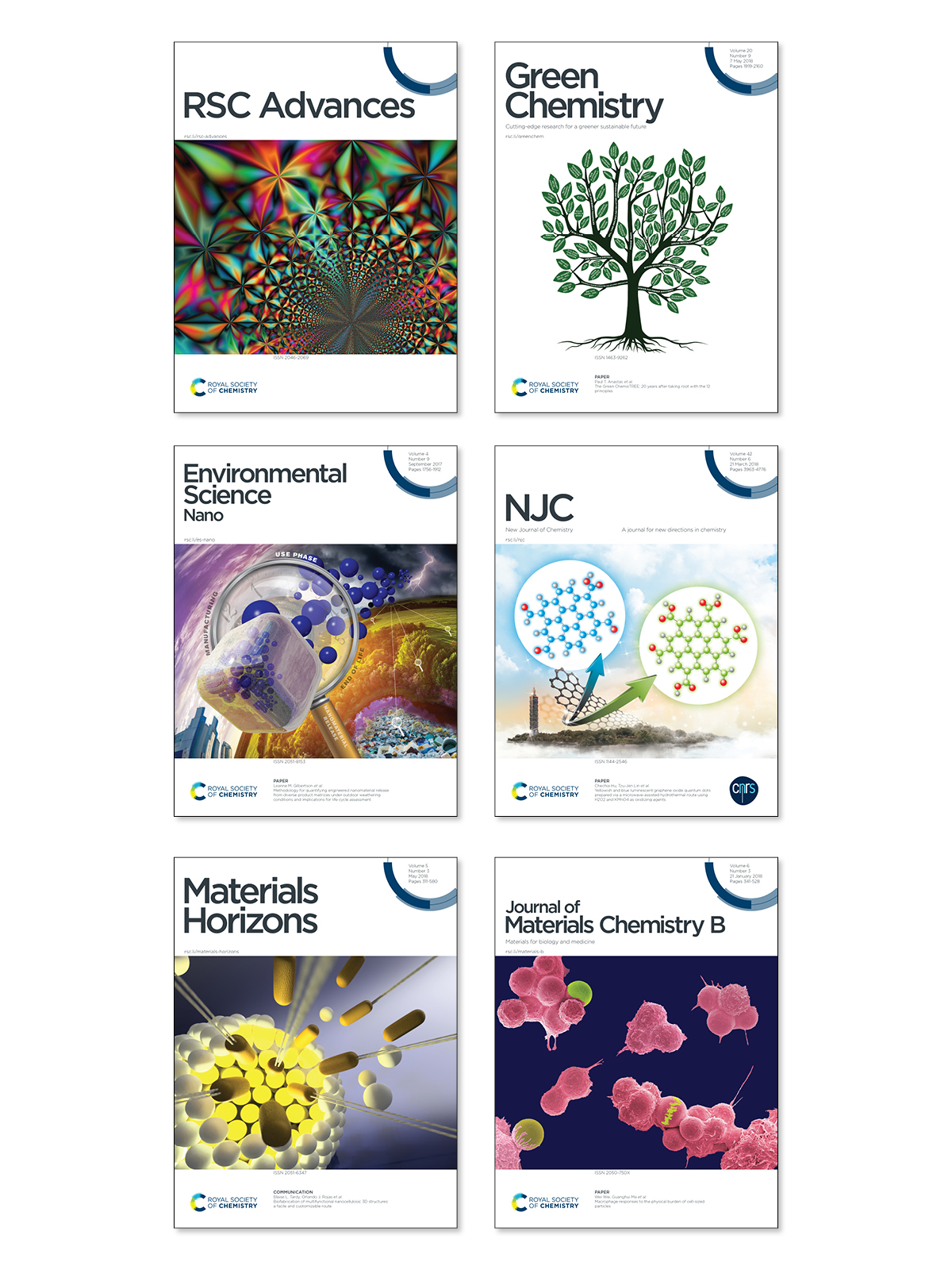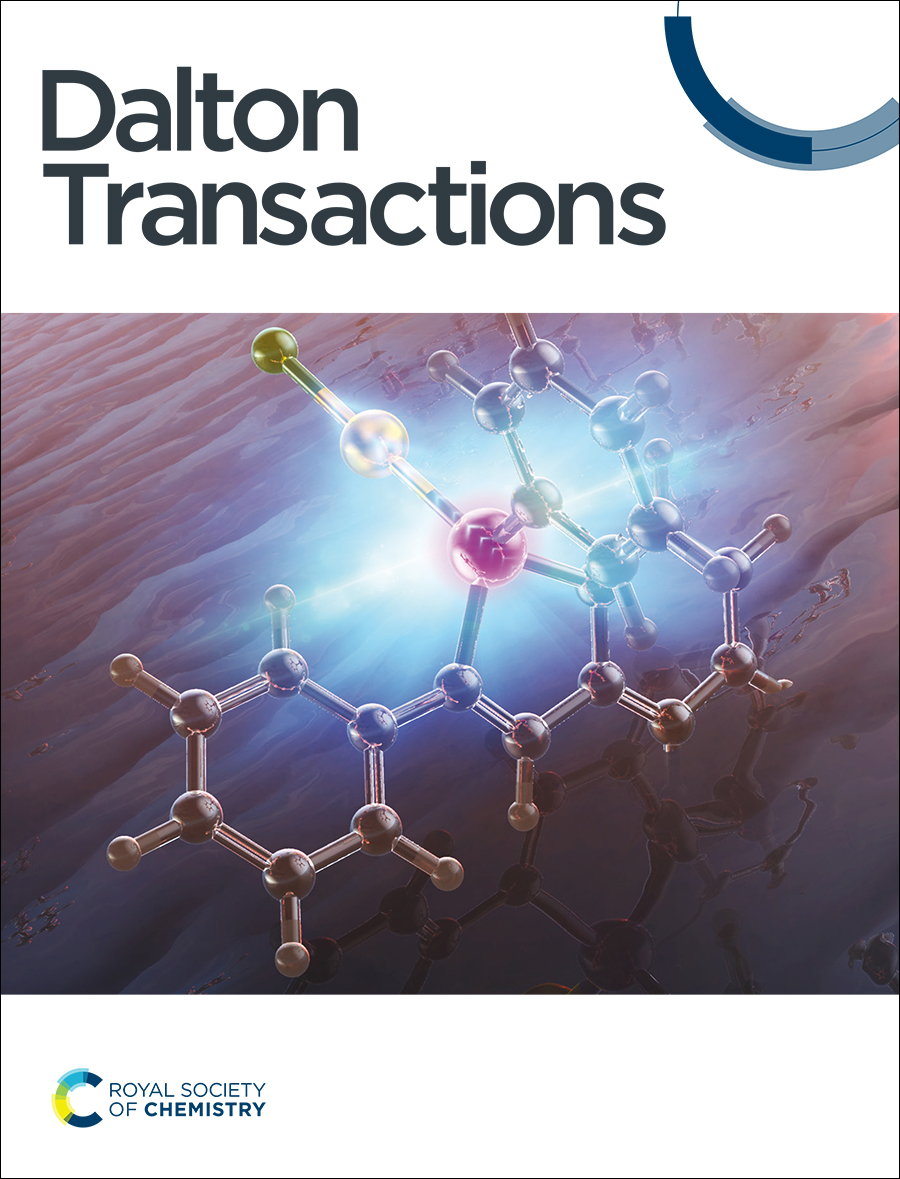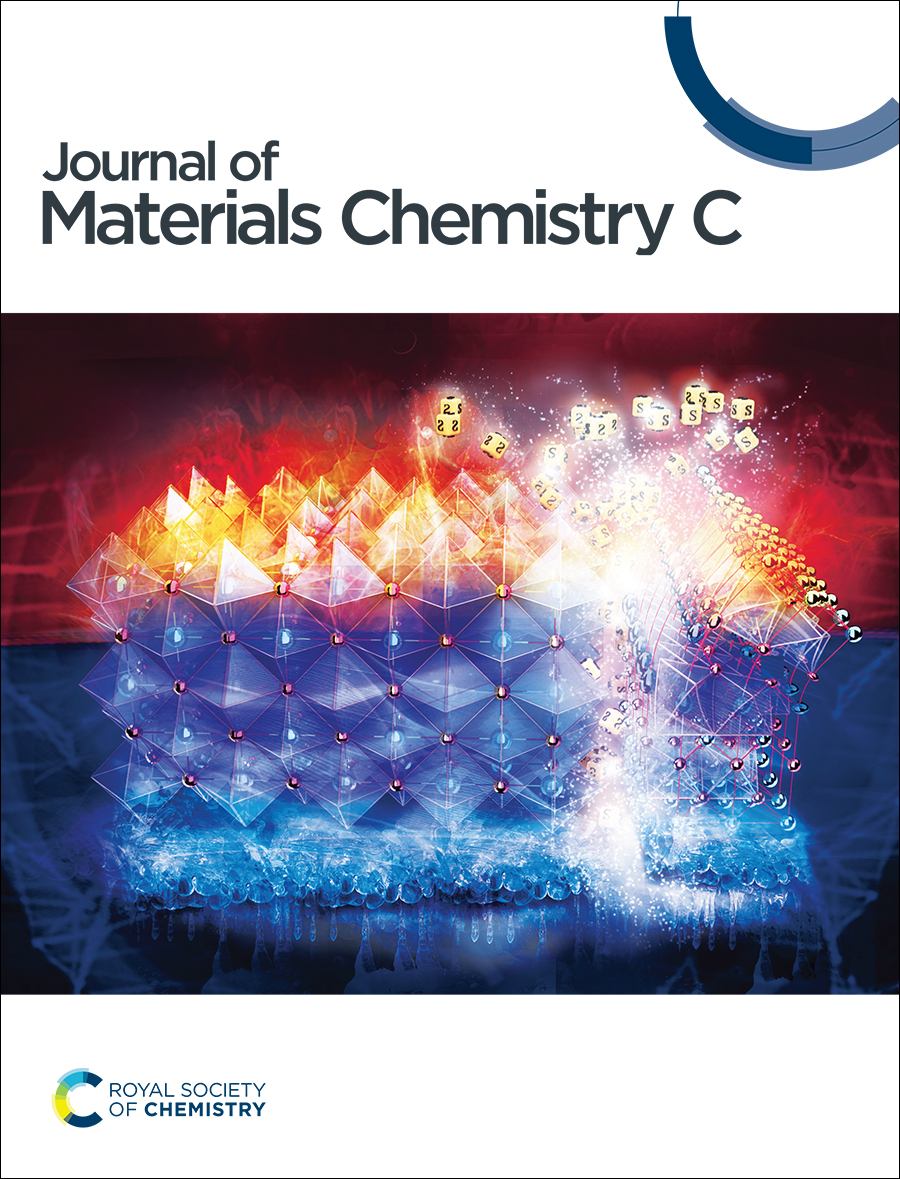The chemical sciences will play a pivotal role in solving the challenges associated with sustainability, climate change and the environment.
Below you can find research and articles in our journals and books from chemists around the world who are trying to solve our environmental issues.
Our themed journal collections
Sustainable polymers

This collection presents the most important developments in these fields in novel synthetic methodology and making use of modern methods such as continuous flow chemistry or energy-efficient photochemical reactions for sustainable polymer synthesis.
Polymers in liquid formulations (PLFs)

PLFs are widely used in adhesives and sealants, agrochemicals, household cleaning, inks, lubricants, paints & coatings, personal care & cosmetics and water treatment. Despite their importance, the way that PLFs are made, used and disposed of is putting unnecessary strain on the environment and creating risks for all parts of the supply chain. This collection showcases some of the innovative research on sustainability aspects of PLFs published across RSC journals.
Metal Organic Frameworks as catalysts for water splitting and CO2 reduction

Recently, water splitting and CO2 reduction have drawn much interest due to the global energy shortage and climate deterioration caused by greenhouse gas emissions. MOFs possess defined structures and unsaturated metal coordination catalytic sites, so it is beneficial to understand the structure–catalytic activity relationship.
Metal Complexes and Inorganic Materials for Solar Fuel Production

This web collection highlights the fundamental and applied inorganic chemistry advances inspired by the study of solar radiation as a limitless source of clean energy. The collection contains contributions from experts in the study of solar light conversion, including research focussed on the development of metal complexes and inorganic materials for CO2, photoreduction, photocatalysis, and photoelectrochemical (PEC) water splitting
Kees Hummelen’s work in the field of organic photovoltaics

Hummelen did significant research in the field of organic photovoltaics. His passion for renewable energy and the development of materials for solar cells went further as he developed many more molecules both for photovoltaics and for thermoelectric applications.
In the last few years, one of his interests has been the use of upconversion, as he pioneered hybrid nanostructures which could harvest low energy photons and convert them into higher energy ones.
Biobased furanic derivatives for sustainable development
This themed collection aims to gather the most advanced research in the area of furanic building blocks. These furanic platform molecules can be further derivatized and employed in various applications (thermoplastics; resins; biofuels; fine chemistry; green solvents, etc.). Their end-life (recycling, biodegradation), within a circular rational, is also a sparking field of research activity. Therefore, the biomass origin of these furanic molecules and the Green 91AV principles that are employed to prepare, modify and dispose these molecules fit with the expectation of the journal.
CO2 Utilisation
As is well known, the massive consumption of fossil fuels, among other human activities, has released substantial amounts of CO2 into the atmosphere, provoking both global warming and dramatic climate changes. As such, carbon dioxide capture and utilisation continues to attract significant attention, and important advances. As an ideal C1 source, efficient transformation of CO2 enables the sustainable synthesis of high value-added chemicals and fuels. Moreover, CO2 can be utilised in a huge number of diverse areas, including as a green tuneable solvent, a working agent, a protective agent, a soft oxidant, and many others.
More on Carbon dioxide utilisation
Since the 2015 Faraday Discussion on CO2 utilisation, there has been a rapid rise in research output globally, together with increased commercialisation. This interdisciplinary collection seeks to collate the developments made across science and engineering, with a view to seeing how further advancements can be made.
The topics covered include: thermal catalytic conversion, accelerated mineralisation, life cycle and upscaling and emerging technologies.
Policy Insights from the Cutting Edge
The 91AV recently held a 3-day symposium on Carbon Dioxide Utilisation (CDU) drawing together international speakers at the forefront of research on this climate mitigation field.
A panel event was subsequently held to summarise and discuss the findings, drawing out the headline conclusions relevant to a policy and multidisciplinary scientific audience.
MOFs for energy and environmental applications
We are delighted to share this selection of the papers. . Additional articles will be added to the collection as they are published. The final versions of all the articles presented and a record of the discussions will be published after the event.
The area of MOFs and related materials is arguably one of the hottest interdisciplinary subjects spanning chemistry, materials science, physics and engineering. A primary reason for this major interest is the possibility of tuning the chemical and structural flexibility of these materials using an enormous variety of combinations of metal ions, bridging ligands, counter-ions and formation of hybrids and composites.
Emerging Contaminants
A collection of papers and reviews focusing on emerging contaminants, which are pollutants of growing concern. The scope of this collection covers analytical methods that can be used for sampling and pre-treatment for chemicals of concern.
Current monitoring methods are infrequent and new methods for measurement of CECs are being developed, including chemical sensors and biosensors as well as passive sampling methods. This themed issue also includes papers on real applications to environmental and other samples. A growing drive to develop effects-based methods is emerging and the challenge of quantifying and addressing chemical cocktails is also considered.
Sustainability themed books
Choose from these book titles on our publishing website

Our new gold open access environmental journal
We recently launched our new gold open access journal, Energy Advances. The public launch of this exciting new journal was 23 August and it will open for submissions in September 2021.
Energy Advances underpins RSC energy science, joining our family of dedicated energy journals – Energy & Environmental Science, Sustainable Energy and Fuels and Journal of Materials 91AV A. It is designed to complement these by broadening the subject coverage while increasing author choice and improving accessibility to our journals.
All article processing charges (APCs) are waived until mid-2024, to ensure as many people as possible have the opportunity to publish and read meaningful papers in this field.
You can get the latest editorial board news, scope details and announcements by signing up to eAlerts.
Discover all of our environmental and sustainability journals
We've signed up to United Nations Sustainable Development Goals Publishers Compact.

